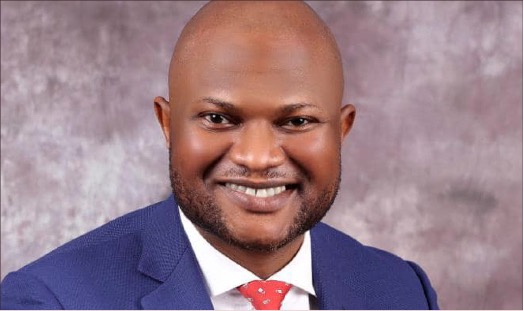Paragraph 1: The Contested Oil Wells and Edo State’s Response
In the heart of Nigeria’s oil-rich Niger Delta region, a dispute over ownership and control of valuable oil wells has erupted between Edo and Delta states. The controversy centers on oil wells situated in the Orogho community, within Orhionmw Local Government Area, which Edo State claims were wrongly ceded to Delta State. Acting swiftly to address the escalating tension and community concerns, the Edo State Government, led by Deputy Governor Dennis Idahosa, embarked on a fact-finding mission to the affected community. This visit aimed to engage with community leaders, youth representatives, and residents to understand the situation firsthand and explore avenues for a peaceful resolution. The Deputy Governor’s presence underscored the government’s commitment to protecting the interests of its citizens and ensuring that Edo State receives its rightful share of benefits from its natural resources.
Paragraph 2: Community Concerns and Historical Context
The Orogho community, at the center of this dispute, has expressed deep anxieties over the potential loss of their "natural wealth" to a neighboring state. For the residents, these oil wells represent not only a source of revenue but also a symbol of their identity and heritage. Historically, since the commencement of oil exploration and production activities by Shell Petroleum Development Company in 1993, royalties and corporate social responsibility contributions were consistently paid to the Edo State Government. This established a precedent of recognition and established Edo State’s claim to the resources. However, the situation took a turn when Seplat Energy PLC took over operations, leading to the current dispute over the ownership of the oil wells and the subsequent flow of benefits.
Paragraph 3: Edo State Government’s Commitment and Appeal for Calm
During his visit, Deputy Governor Idahosa addressed the community’s concerns, assuring them of the government’s unwavering commitment to reclaiming the disputed oil wells and securing the associated benefits for the socio-economic development of Edo State. He emphasized that the current administration would exhaust all available legal and administrative channels to rectify the alleged ceding of the oil wells. Idahosa, accompanied by representatives from Seplat Energy and key government officials, inspected the disputed wells, demonstrating the government’s proactive engagement in resolving the matter. Recognizing the potential for unrest and frustration, Idahosa appealed to the community members to maintain peace and refrain from taking the law into their own hands, assuring them that the government would diligently pursue a just and equitable resolution.
Paragraph 4: Community’s Plea for Justice and Economic Opportunities
The Orogho community, represented by its youth leader, Charles Eghaghe, expressed appreciation for the government’s prompt response to their plight. They highlighted the injustice they perceive in the ceding of their oil resources to another state, particularly given the lack of corresponding development in their community. Eghaghe pointed to the stark reality that many Orogho youths, despite being graduates, remain unemployed, underscoring the missed opportunities for economic empowerment that the oil wells represent. Their appeal to the government was urgent and heartfelt – to swiftly reclaim the disputed oil wells and ensure that the benefits derived from these resources directly contribute to job creation and overall community development.
Paragraph 5: The Way Forward: Dialogue and Collaboration
Moving forward, the resolution of the oil well dispute hinges on a multi-pronged approach involving dialogue, collaboration, and adherence to legal processes. The Edo State Government, in its commitment to a peaceful resolution, must engage in constructive discussions with all stakeholders, including the Delta State Government, Seplat Energy PLC, and representatives of the Orogho community. These discussions should aim to establish a clear understanding of the historical context, legal frameworks, and community concerns surrounding the disputed oil wells. Transparency and open communication are crucial to building trust and fostering a collaborative environment conducive to finding a mutually agreeable solution.
Paragraph 6: Ensuring Sustainable Development and Community Empowerment
Ultimately, the resolution of this dispute must prioritize the sustainable development and empowerment of the Orogho community. The benefits accruing from the oil wells should be channeled towards creating employment opportunities, improving infrastructure, and enhancing the quality of life for the residents. This includes investing in education, healthcare, and other social programs that contribute to long-term community well-being. Moreover, ensuring environmental protection and mitigating the potential negative impacts of oil exploration and production activities must be a paramount concern. By adopting a holistic and community-centered approach, the resolution of the oil well dispute can serve as a catalyst for positive change and sustainable development in the Orogho community and Edo State as a whole.


